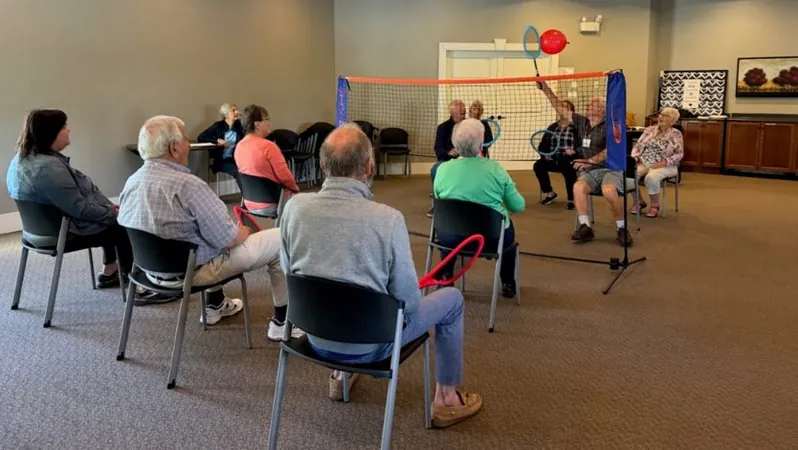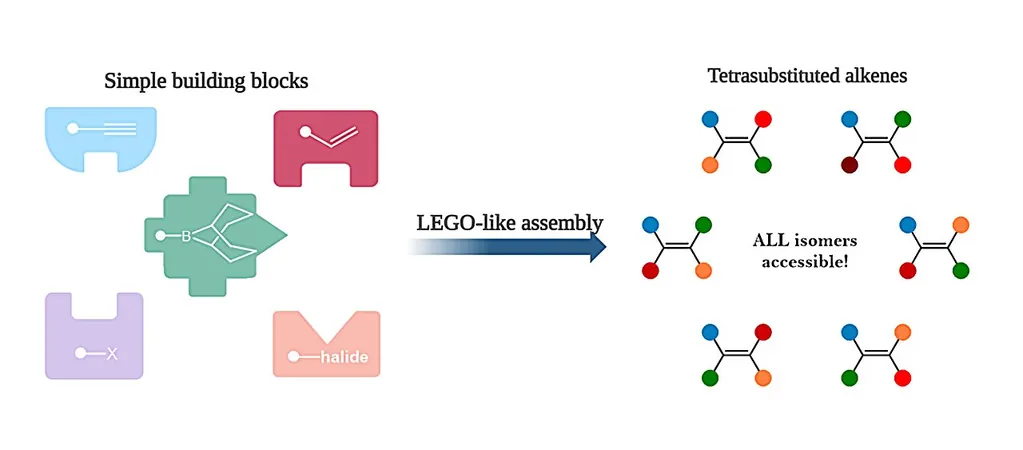
Unmasking Alzheimer’s: How You Can Make a Difference Today!
2025-01-20
Author: Emma
The Impact of Alzheimer’s Disease
Alzheimer’s disease and other forms of dementia currently impact a staggering 316,600 individuals in Ontario alone, with 4,000 of those affected residing in the Prescott-Russell, Stormont-Dundas, Glengarry, and Akwesasne regions. As we recognize January as Alzheimer’s Awareness Month, the Alzheimer Society of Ontario in Cornwall is spearheading efforts to highlight the urgent need for enhanced support services for those grappling with these debilitating conditions.
The Importance of Education and Destigmatization
Education Coordinator Josee Desrochers-Leduc emphasizes that destigmatization remains paramount, alongside the need to mitigate factors that could elevate the risk of developing these diseases. While Alzheimer’s is the most commonly recognized type of dementia, there are various forms, including Lewy Body dementia, frontotemporal dementia, and vascular dementia, as well as dementia resulting from traumatic brain injuries or infections.
Understanding Cognitive Declines
"Understanding that brain changes are real is vital," Desrochers-Leduc stresses. Although memory loss is a hallmark symptom of dementia, it is crucial to note that the cognitive declines extend far beyond simple memory issues. Individuals may retain their memory but struggle with spatial and temporal awareness.
Awareness of Dementia Symptoms
She highlights a concerning statistic: approximately 50% of individuals with dementia may not even realize they are affected, as their cognitive impairments often go unnoticed. The Alzheimer Society estimates that thousands more in the region exhibit dementia symptoms but have not yet been accurately diagnosed due to insufficient medical attention.
Support Programs Offered
To combat this, the Society offers a variety of support programs tailored to people with dementia and their family caregivers. The "Minds in Motion" initiative focuses on keeping the mind engaged and encouraging social interactions for those in the early to mid-stages of dementia. In addition, the Society provides day programs, respite care, and supportive groups for caregivers, acknowledging the emotional and physical toll of the caregiving role.
Understanding Risk Factors
Alzheimer's can impact individuals at any age, with cases emerging as early as 30 years old, rather than the commonly held belief that it only affects the elderly. Desrochers-Leduc points out that risk factors for developing Alzheimer’s and other forms of dementia include high blood pressure, isolation, sedentary lifestyle, and dehydration, making lifestyle modifications and proactive health management essential.
Fostering Brain Health
The Alzheimer Society urges the public to engage in activities that foster brain health, such as regular physical exercise, socializing, mental challenges, and healthy eating habits. Stress reduction plays a crucial role in maintaining cognitive health as well.
Community Responsibility
The fight against Alzheimer’s is not just a personal battle but a community responsibility. By increasing awareness and support, we can help facilitate a brighter future for those affected and their families. معرفة المزيد حول كيفية إعادة الأمل للأشخاص المصابين بالخرف! (Learn more about how to restore hope for those living with dementia!)









 Brasil (PT)
Brasil (PT)
 Canada (EN)
Canada (EN)
 Chile (ES)
Chile (ES)
 Česko (CS)
Česko (CS)
 대한민국 (KO)
대한민국 (KO)
 España (ES)
España (ES)
 France (FR)
France (FR)
 Hong Kong (EN)
Hong Kong (EN)
 Italia (IT)
Italia (IT)
 日本 (JA)
日本 (JA)
 Magyarország (HU)
Magyarország (HU)
 Norge (NO)
Norge (NO)
 Polska (PL)
Polska (PL)
 Schweiz (DE)
Schweiz (DE)
 Singapore (EN)
Singapore (EN)
 Sverige (SV)
Sverige (SV)
 Suomi (FI)
Suomi (FI)
 Türkiye (TR)
Türkiye (TR)
 الإمارات العربية المتحدة (AR)
الإمارات العربية المتحدة (AR)